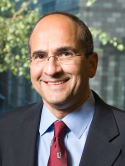Unilateral postoperative chest wall radiotherapy in bilateral tissue expander/implant reconstruction patients: A prospective outcomes analysis Journal Article
| Authors: | McCarthy, C. M.; Pusic, A. L.; Disa, J. J.; McCormick, B. L.; Montgomery, L. L.; Cordeiro, P. G. |
| Article Title: | Unilateral postoperative chest wall radiotherapy in bilateral tissue expander/implant reconstruction patients: A prospective outcomes analysis |
| Abstract: | Background: Implant reconstruction has a major role to play in breast reconstruction, as some patients neither wish nor are suitable for autogenous reconstruction. The suitability of implant reconstruction in patients who may receive postoperative, adjuvant radiation therapy has not, however, been fully clarified. The purpose of this study was to evaluate complications, capsular contracture, aesthetic outcomes, and patient satisfaction in patients who have undergone bilateral tissue expander/implant reconstruction and unilateral, postexchange, adjuvant radiotherapy. In this study population, the effect of radiation can best be appreciated because the nonirradiated breast acts as a control. Methods: A review of all bilateral tissue expander/implant reconstructions at a single cancer center was undertaken. Twelve patients who underwent bilateral expander/implant reconstruction and unilateral postexchange radiotherapy were eligible for participation. A prospective evaluation of complications, cosmesis, and patient satisfaction was performed. The evaluation of cosmesis and patient satisfaction was executed for 10 of the 12 patients, as two were dead at the time of follow-up. Results: Mean follow-up was 23.5 months (range, 12 to 58.5 years). In 40 percent of patients, there was no discernible difference in capsular contracture between the irradiated and nonirradiated breasts. In 50 percent of patients, the irradiated breast demonstrated increased contracture by a single modified Baker grade. In 10 percent of patients, contracture of the irradiated breast was two modified Baker grades greater than that of the nonirradiated side (grade III versus grade I). Conclusion: For the majority of patients, the degree of capsular contracture was higher on the irradiated side, yet overall symmetry, aesthetic results, and patient satisfaction remained high. These data support the conclusion that immediate, bilateral breast reconstruction using tissue expansion and implants is an acceptable option for the subset of patients who may undergo unilateral, postexchange radiotherapy. |
| Keywords: | adult; clinical article; treatment outcome; patient satisfaction; implant; review; postoperative period; radiotherapy, adjuvant; follow up; prospective study; radiotherapy dosage; radiotherapy; breast neoplasms; breast reconstruction; mammaplasty; algorithms; tissue expansion; irradiation; outcomes research; breast endoprosthesis; breast implants; autograft; thorax wall; thoracic wall; breast implantation; contracture; tissue expanders |
| Journal Title: | Plastic and Reconstructive Surgery |
| Volume: | 116 |
| Issue: | 6 |
| ISSN: | 0032-1052 |
| Publisher: | Lippincott Williams & Wilkins |
| Date Published: | 2005-11-01 |
| Start Page: | 1642 |
| End Page: | 1647 |
| Language: | English |
| DOI: | 10.1097/01.prs.0000187794.79464.23 |
| PUBMED: | 16267426 |
| PROVIDER: | scopus |
| DOI/URL: | |
| Notes: | --- - "Cited By (since 1996): 30" - "Export Date: 24 October 2012" - "CODEN: PRSUA" - "Source: Scopus" |
Altmetric
Citation Impact
BMJ Impact Analytics
Related MSK Work








